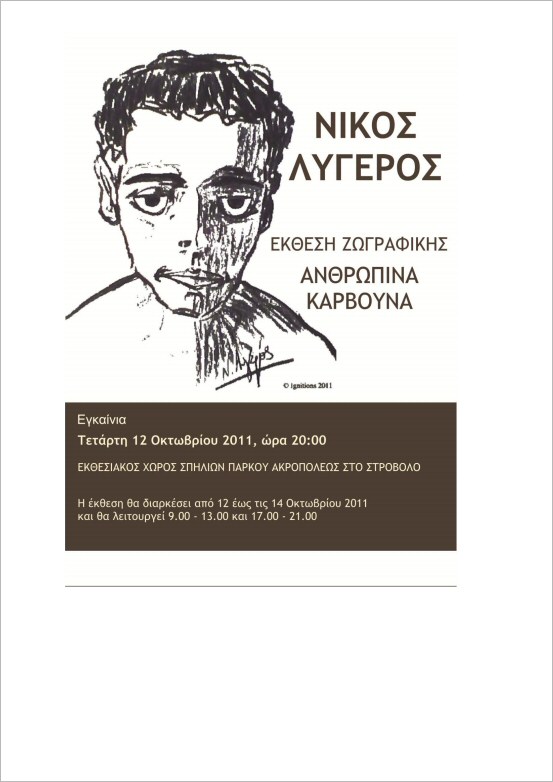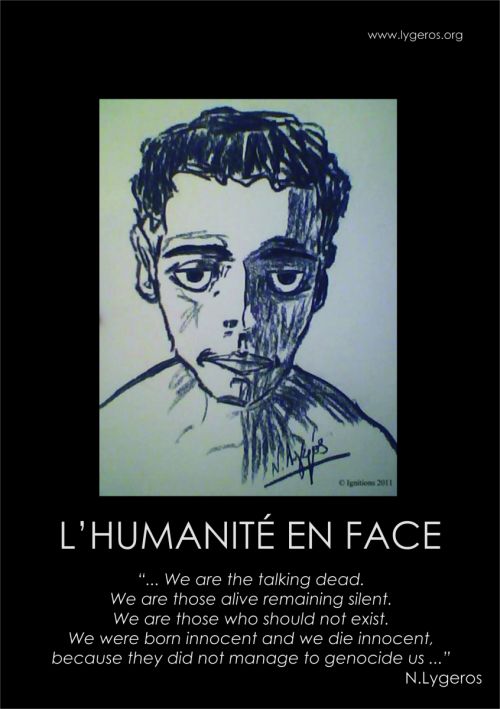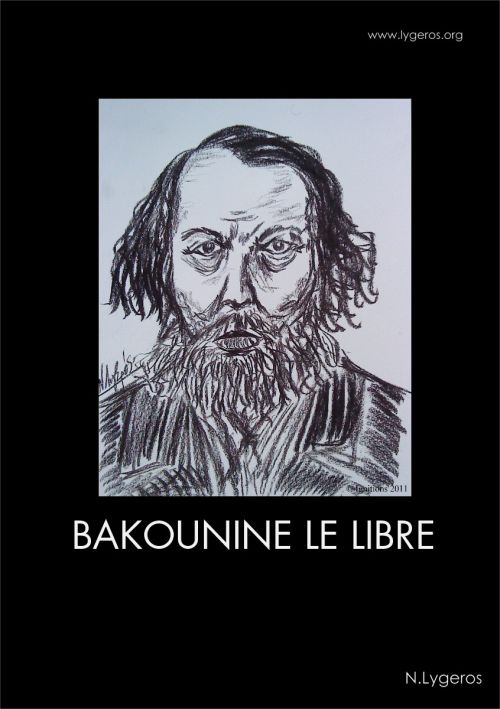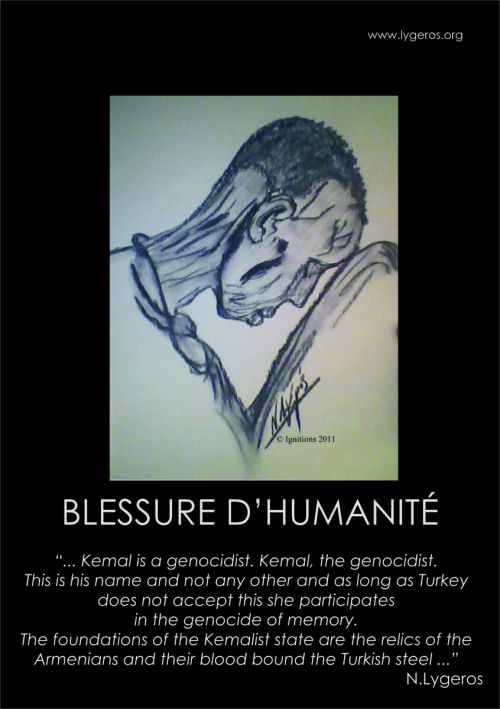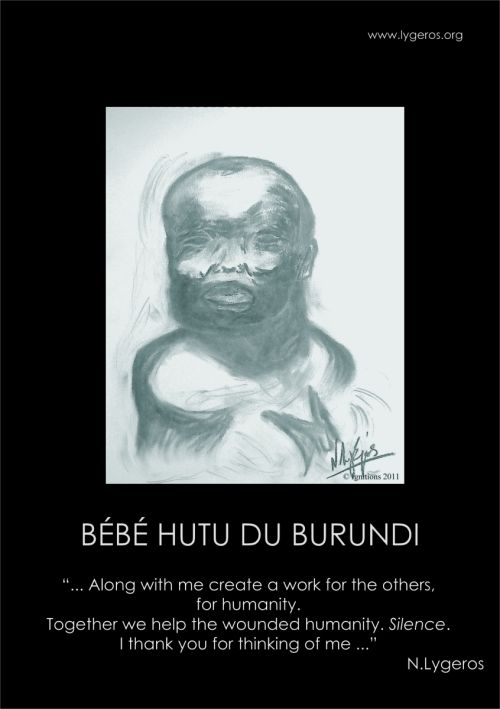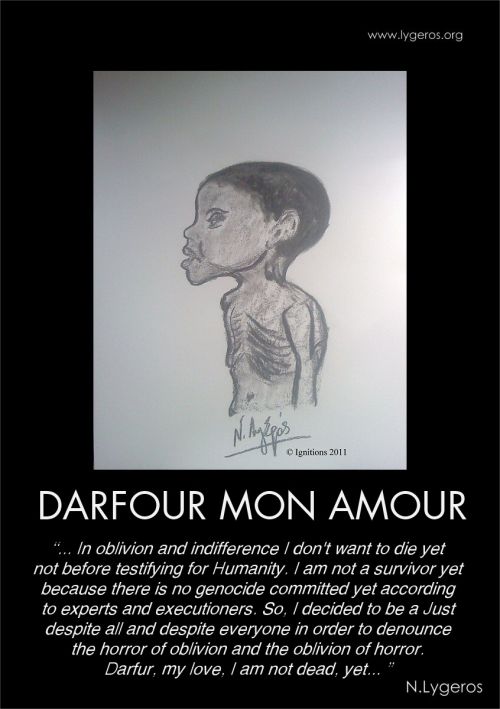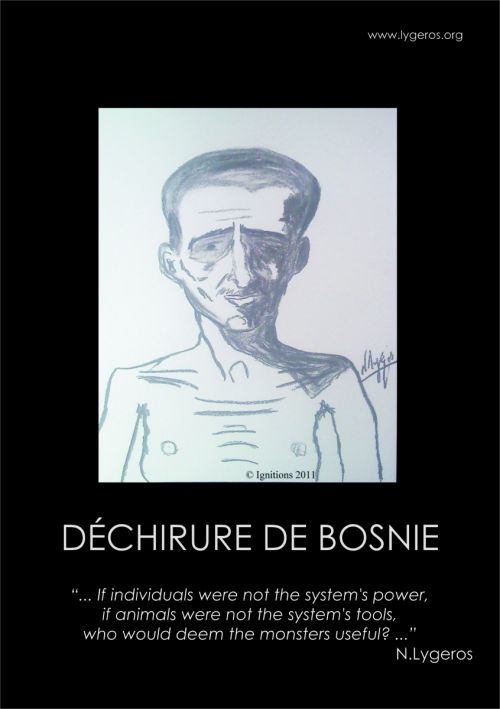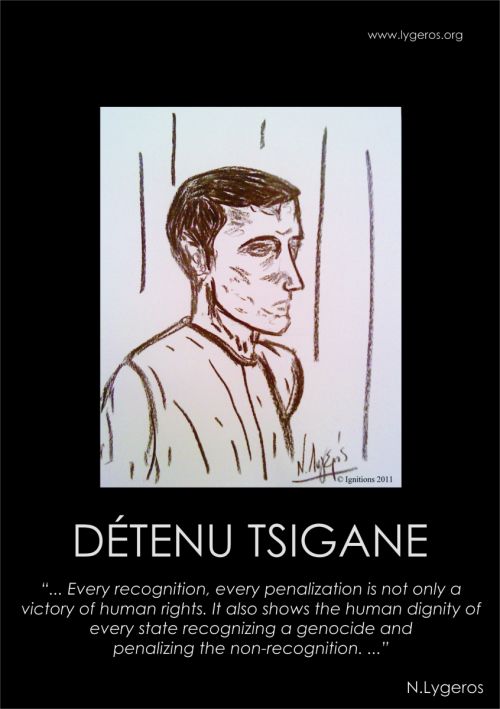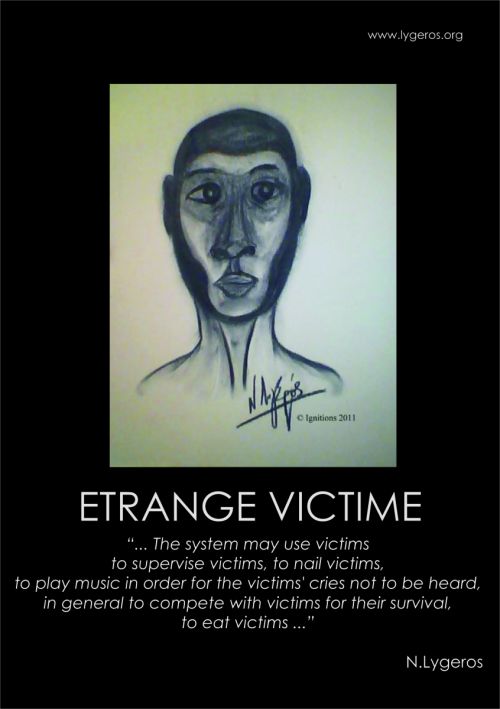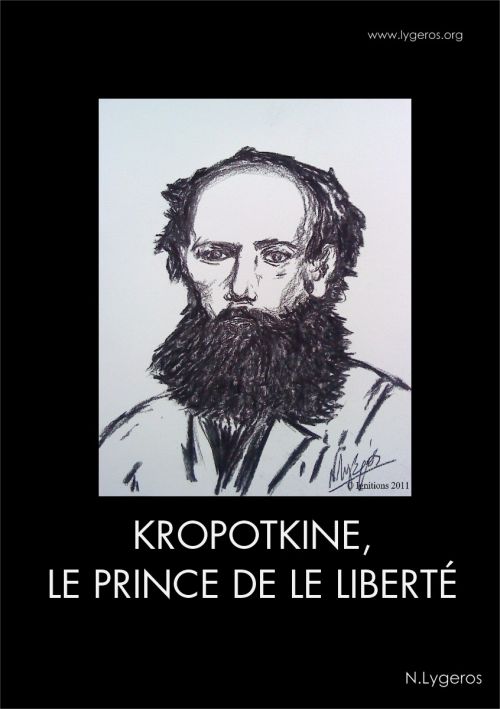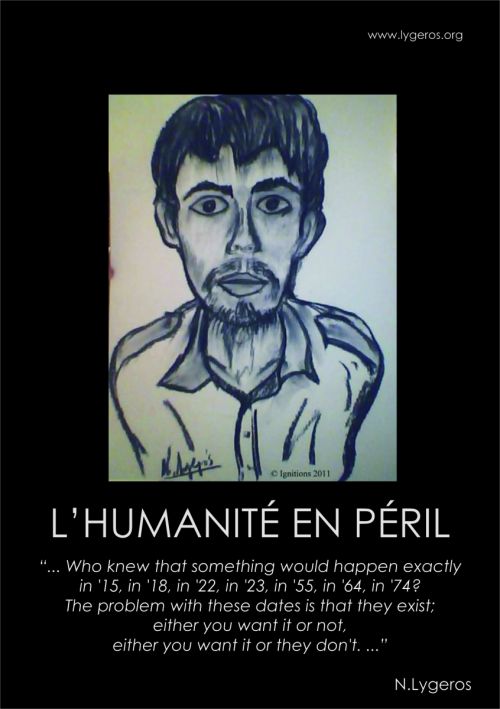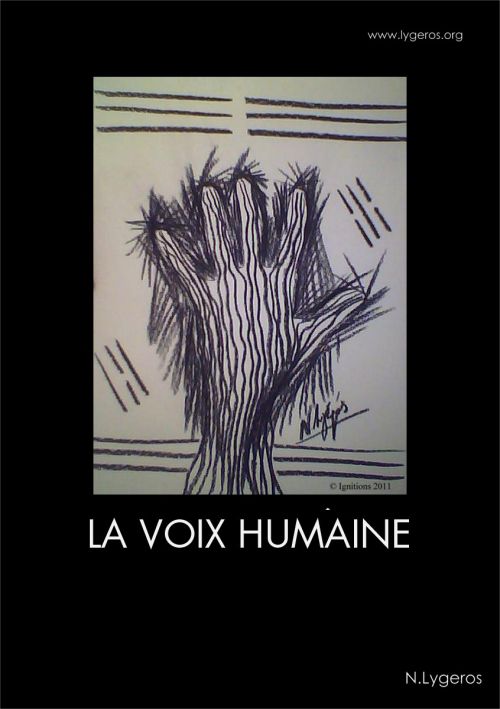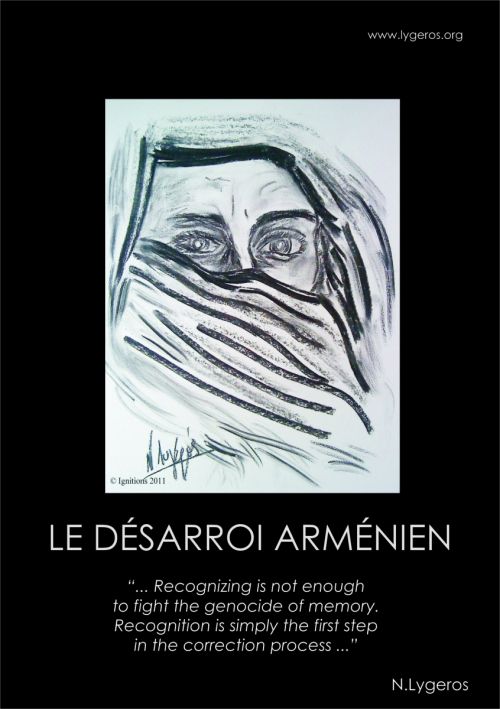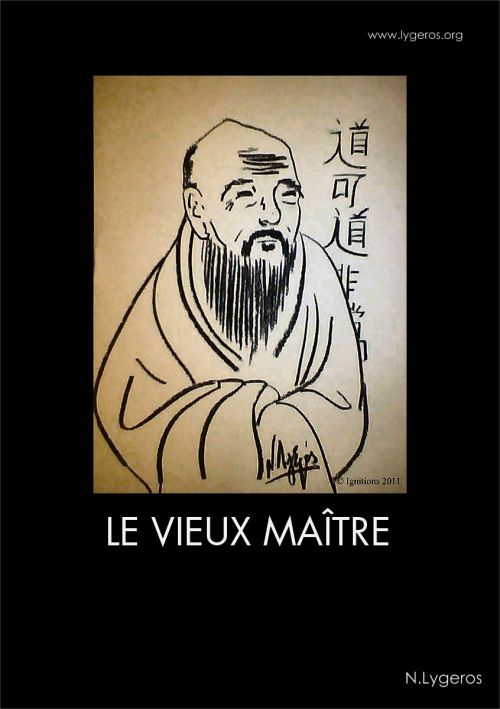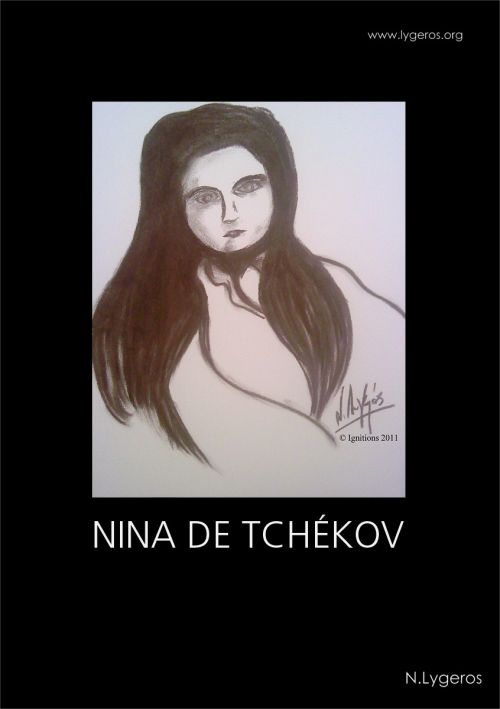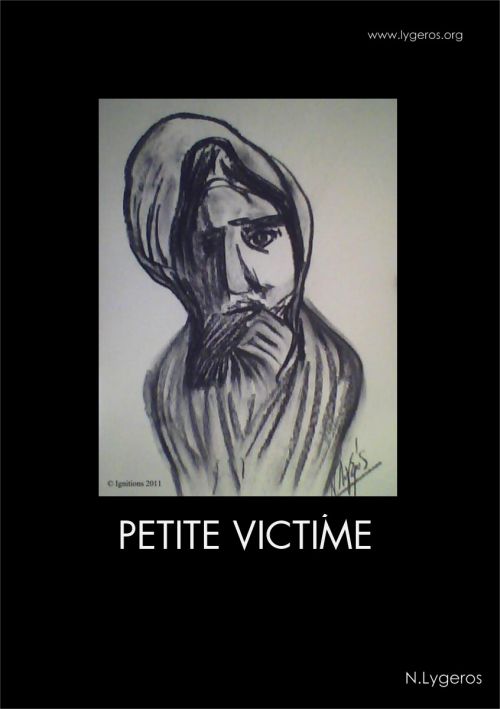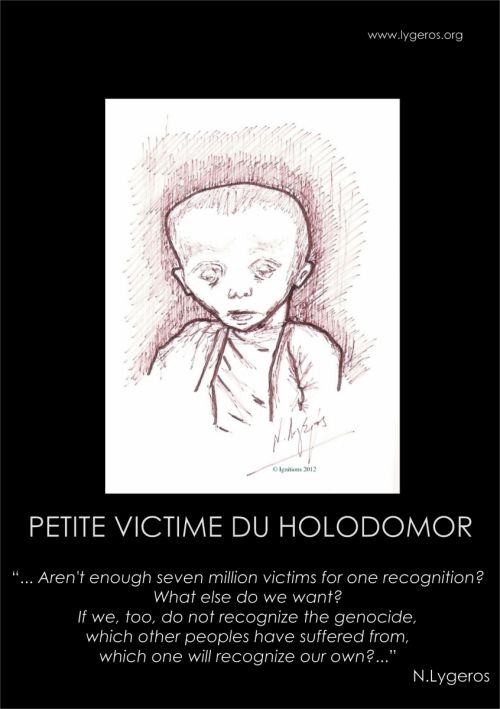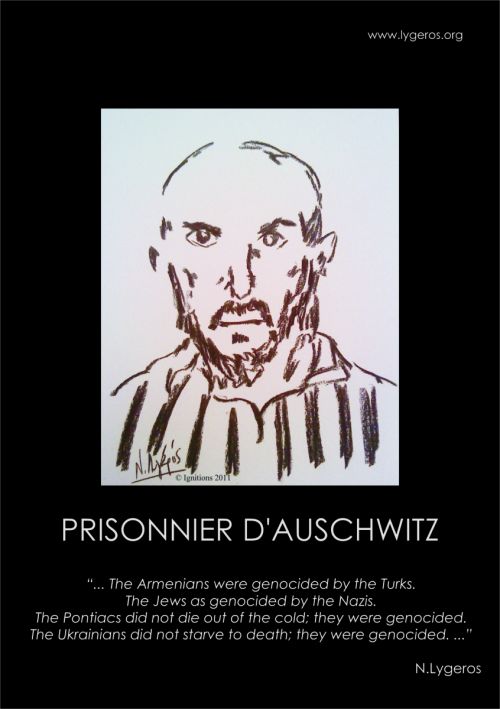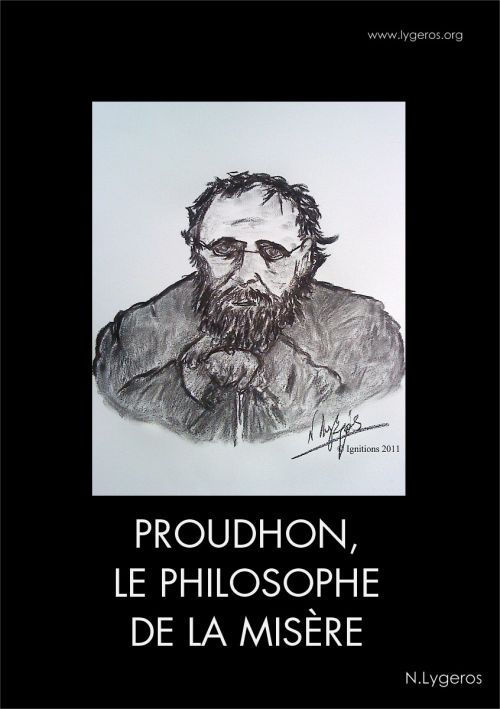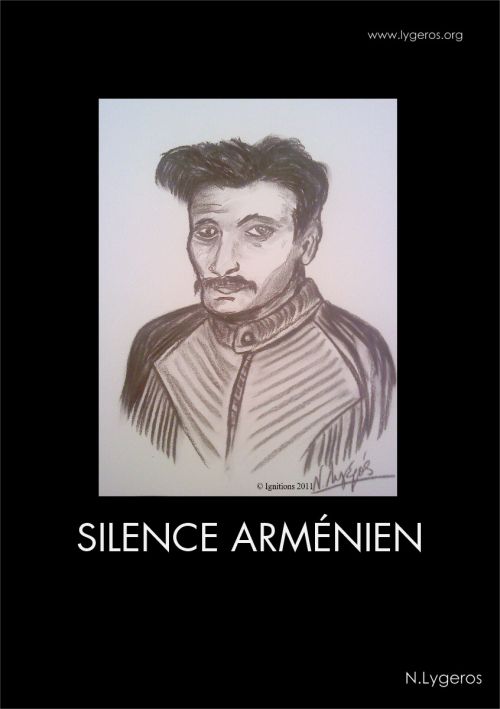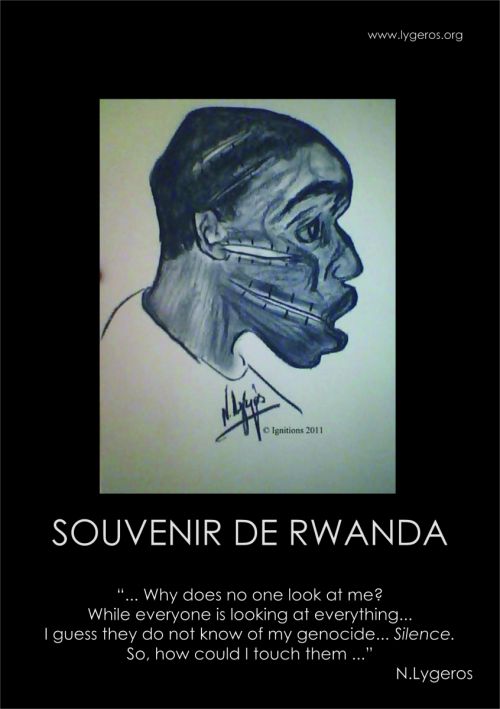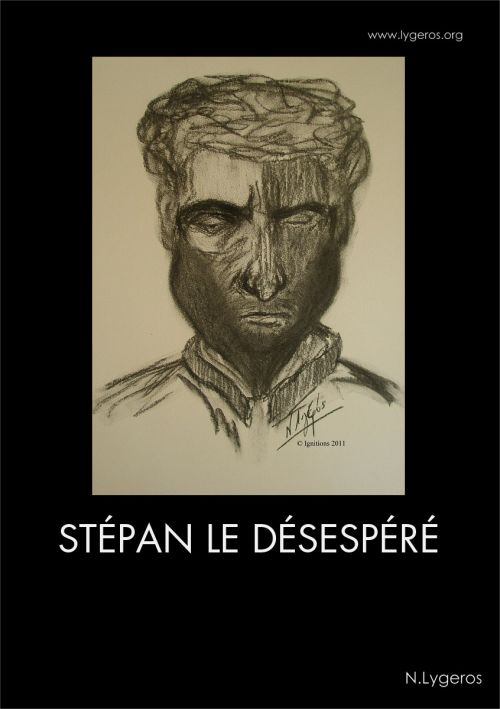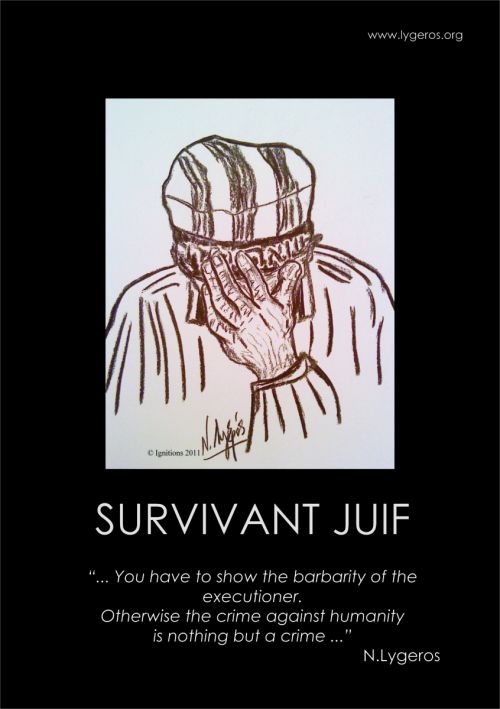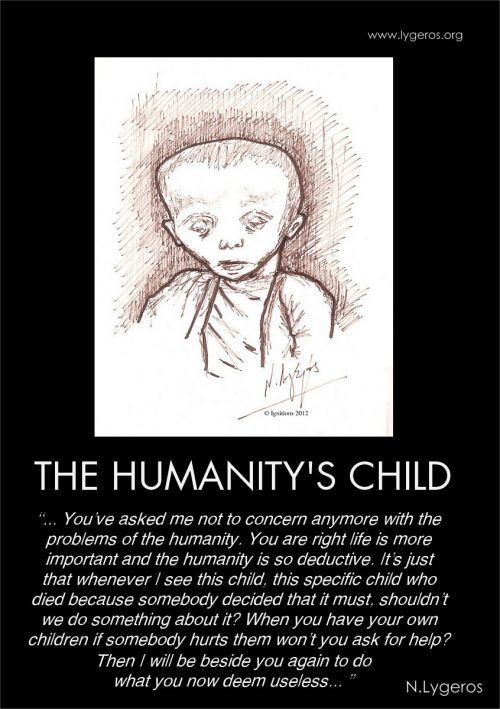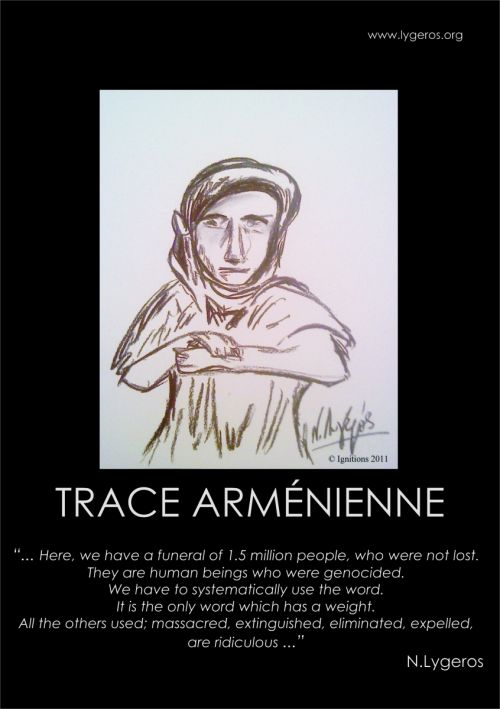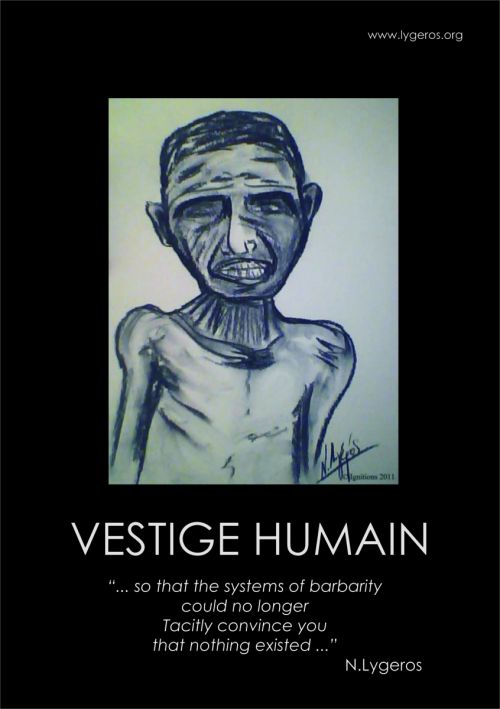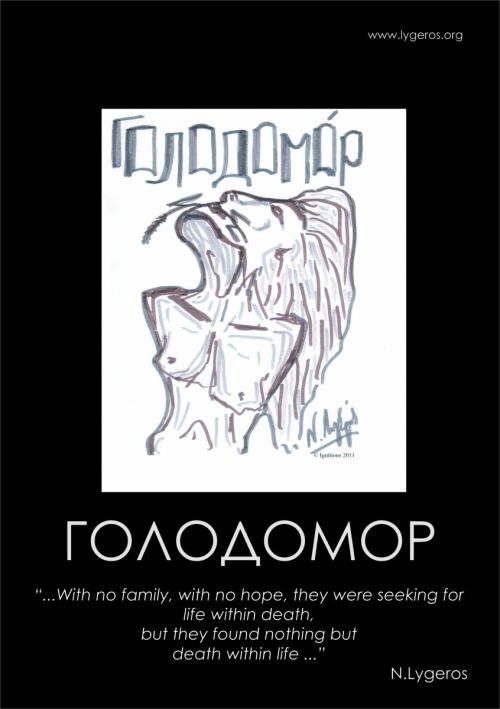Professor Nikos Lygeros: Perspectives on GenocidePosted: Wednesday, June 06, 2012 at 10:33 AM UT | Updated: August 14, 2023 
Contents
Condemning inhumanityN. Lygeros We tend to talk about the others according to analyses by foreigners, there are, though, texts which are determinative by themselves. They don’t need a specialized interpretation. For the experts on the genocide of the Armenians there are many; however, hardly do they appear on newspapers. The following extract is written by Dr. Mehmet Resit, commander of Diyarbakir.
With these few and simple phrases the writer explains the genocide of 1,500,000 Armenians. Nobody can say that he is a foreigner, since he is a Turk. Nobody can say that he is illiterate, since he is a doctor. Nobody can say that he is not aware of the issue, since he is a commander. In substance there is no excuse. Moreover the issue and the problem of the recognition of the genocide of the Armenians prove how the Turks deal with it. Even though the genocide has been recognized by tenths of countries and institutions at an international level, the Turks insist that it is not a genocide and we should examine the Ottoman archives, but this has been already taking place. History reproaches this crime against humanity, but the Turks do not admit it and remain intransigent. They do not change their position because the accusation does not scare them. And the reason for that is simple. For, there is not any condemnation. The paradigm of the genocide of the Armenians is not indicative only for the genocide of the Pontiacs but for the Cypriots as well. Invasion and occupation may be pointed as accusations but they have not been condemned. And for this reason the Cypriot issue has remained undeveloped for decades. Whereas with the recourses there is condemnation and along with it there is also the cost of inhumanity. The drastic developments on the Cypriot issue over the last few years are mainly due to the recourses of the Cypriots. It is only through those that they managed to transform the accusation into condemnation. Now the Turks should not look only at their eternal present which used to determine everything. Now they should pay attention at their past as well, because it decides for their future. Through recourses and the concept of condemnation, inhumanity has now a cost. Economy functions as the dynamics of ethics and this is what they are now afraid of. The genocide of the Pontiacs: when white turns into blackN. Lygeros The genocide of the Pontiacs in comparison to the genocide of the Armenians was more sophisticated because it didn’t have to leave traces behind, ones that could be used as accusations against the Turks nationalists. More specifically the Austrian Minster of Foreign Affairs reports to Berlin on the policy of their allies.
Not only is this testimony indicative of the method; it also demonstrates the problem of the repercussions in case there is no condemnation and recognition of a genocide. For a genocide may hide another one. The reactions raised against the genocide of the Armenians were not enough to obviate the genocide of the Pontiacs. In substance the Turks changed only the methodology, but the result was the same again. This change renders the issue of the recognition of the genocide more difficult because many of the Pontiacs died as they couldn’t suffer weather conditions of the winter. And this is the reason why the genocide of the Pontiacs was named: in French Le massacre blanc (Τhe white massacre). The Turks did not allow them to take with them neither blankets nor food. And they only allowed stations in deserted places. This is confirmed by the French confidential reports of that time.
In another report of the Intelligence Service of the French Army Headquarters we find:
In total this information shows the necessity of the recognition of the genocide of the Armenians and the Pontiacs so as to set an end to this deadly series with Smyrne, Imvros, Tenedos, Constantinople and Cyprus. Even now shadows of the past are coming back to remind us of the crimes which some try to hide in indifference and everyday life. However, these crimes cannot come under statute of limitations.
The genocide of the Pontiacs recognitionN. Lygeros Rarely do we know whether a struggle is worthy during our passing life. We are used to fight out of a need, without knowing whether there actually is an evaluative element proving the rationality of our stance in an objective way. Recognition of genocide belongs to these rare cases in which humanness touches humanity directly. This struggle is valuable regardless of the fighters giving it. When a whole people became victim of inhumanity, humanity itself was the one to have been hurt. The same holds for the genocide of the Pontiacs. This is not only a local problem concerning a minority. Pontus as a Greek element and as an acritic entity of our civilization constitutes one of the singularities characterizing our multiplicity. Consequently, we shouldn’t isolate the Pontiac cause neither as a historic fact nor as a strategic goal. On the contrary, we have to integrate the know-how we possess in the human rights domain. The example of the genocide of the Armenians recognition is both indicative and efficient; because intermediate targets were not attained by state institutions, but by lobbies. When the European Union recognized the genocide of the Armenians in 1987, Armenia was not an independent state yet. Thus, the framework of a state is not indispensable, and consequently this is not an excuse for inertia. The example of the 2004 European Union report on the Imvros issue is spectacular, because many Greeks had been considering that Imvros was one of the ‘lost homelands’ and just that. However, the most efficient example at personal level is the recent Cypriot struggle in the domain of the massive appeals against Turkey. For, at this level each refugee contributes to the indirect liberation of his country, by transforming a moral and humane problem into one to be characterized as economic and strategic. Through the human rights strategy, the Cypriots proved that economy can be interpreted as the dynamics of ethics. In total, all these historic examples substantially constitute the basic elements of a strategic mix, which in coordinated moves proves that it is a powerful weapon in the human rights domain; especially as regards the genocide of the Pontiacs recognition issue. The Pontiacs are not alone in this struggle for recognition, because other peoples, too, have suffered and are still suffering by the Turkeys’ diachronic military regime. However, they have both experiences and successes in difficult cases and it’s those that we have to use dynamically within a strategic framework in which the sentimental and traditional elements do not suffice. This struggle should be organized through appeals at an individual level, but also through specialized lobbies at a group level, too. Our Pontiac memoryN. Lygeros “Who will claim our existence and our history, unless we do it? No real mentions to the Hellenism of Pontus are there in Greek school books... There can be no struggle without memory and education... Pontus has not forgotten us. We on our part should not forget it, because it is a part of our history. If we forget it, we will forget our existence, too.” — N. Lygeros For a contemporary Greek, a Pontian is not a victim of genocide, but just a hero of stupid jokes essentially and historically coming from Turkey. No real mentions to the Hellenism of Pontus are there in Greek school books, as it has correctly been pointed out by A. Pavlidis. Our children are not aware of the Pontiac laments’ beauty. They are not aware of acritic songs; because no one teaches them the historic given. Moreover, experts on Pontus able to occupy seats in Greek Universities are rare. For, strategy of silence takes real action. In other words, we on our own reinforce the genocide of memory. For an average Greek the Pontians are not refugees in full capacity of the term. However, he does not wonder who is not a refugee or descendant of one in Greece. This simplification of the Pontiac question, allows many to eradicate it from our national issues. Now there is a very positive framework for the genocide question shaped by the problem of the Cyprus Republic recognition; but no one evaluates it efficiently for the Pontiac question. Especially in France but also throughout the European Union, the Armenians dynamically claim their rights and recognition of the genocide as a sine qua non condition. This is a creative and cooperative paradigm. Genocides of the Armenians and Pontians are historically related and recognizing the one reinforces recognizing the other. However, they have to function together in pair since the same objective is shared. We have to be united in present and future through our past. The dynamic claiming is necessary particularly in this critical period for the European Union, which inspects the elements of Turkey. Who will claim our existence and our history, unless we do it? If we forget our own memory and turn it into a joke, which human rights court will come and assist our struggle? There can be no struggle without memory and education. The Pontiac element is not a generated case of the Greek history. The mention to the Empire of Trabzon suffices to prove this. Whoever is aware of this, can fight; but, what about the others? The Greeks must be aware of their history, if they truly want modern Hellenism to exist. The Pontians still continue chanting our history; but who listens to their songs? Many of us have forgotten laments, hymns and genocide. However, only few and the stones remember. Their resistance should be strengthened by the European standards, since the Greek ones are not enough, to aid our motherland a posteriori again. Pontus has not forgotten us. We on our part should not forget it, because it is a part of our history. If we forget it, we will forget our existence, too. The necessary recognition of the genocide of the AssyriansN. Lygeros “It is significant to realize that the Assyrian victims are our victims, too... The Armenians, Assyrians and Greeks are victims of the same trinity of genocide. Consequently, only united as three fingers we will manage to claim our human rights. So, let's recognize as soon as possible the genocide of the Assyrians in Greece.” — N. Lygeros Many of our own in Greece do not know what to do exactly as regards the genocide issue. And most of them remain passive by simply waiting for moves on the part of the others. Whereas the European Union’s decision in 2006 and Sweden’s one in 2010 are clear, since they present the three genocides of the Armenians, Assyrians and Greeks as parts of a single framework. In fact, it is in this framework that the partial recognitions by Australia stand. In Greece we very well know that these genocides resulted by the same strategy on the part of the Ottoman Empire, the Young-Turks and the Kemal regime. In reality, they are a trinity of genocide. And it is in this way that it should be presented to constitute the most powerful weapon in the recognition struggle. The genocide of the Greeks of Pontus has been recognized since 1994 and the Armenians one since 1996. Therefore, it is necessary to recognize the genocide of the Assyrians, if we truly want to rationally and efficiently fight barbarity and genocide of memory. This coalition framework has to be created not only on humanness grounds, which is the primary and the most important reason, but also on grounds of strategy. For, we cannot ostensibly fight for the recognition of the genocide of our own, while we ourselves are not fighting for the recognition of our own. It is significant to realize that the Assyrian victims are our victims, too. And no one has the right to leave its own deceased behind. The same holds for the human rights fighters who as Servants of Humanity should not let any barbarians grab their victims. If we do not do this, then our struggle has no meaning and attacks by Turkey should not surprise us, when we turn to international courts, because, we ourselves would not have met our obligations towards our deceased. The Armenians, Assyrians and Greeks are victims of the same trinity of genocide. Consequently, only united as three fingers we will manage to claim our human rights. So, let’s recognize as soon as possible the genocide of the Assyrians in Greece. Genocide of the Ukrainians and achievements of humanenessN. Lygeros “Not only does the Unquenchable Flame symbolize genocide by fire, but also recognition by light.” — N. Lygeros In Greece the genocide of the Ukrainians is almost unknown. Holodomor has not been heard not even as a word. Whereas 17 countries have already recognized the genocide of the Ukrainians as a crime against humanity. In a way we could say that as to Greek standards this has been a successful genocide, since society has either forgotten it or is indifferent to it. However, this does not mean that victims and executioners do not exist. This does not mean that innocent people were not murdered and that Just people do not struggle for recognizing the 1932-1933 genocide. The Unquenchable Flame’s message is simple: Ukraine recalls, the world recognizes. And its symbolism is absolutely comprehensible. The Crucified Christ in the Virgin Mary’s heart explains the death’s birth. Wheat cobs refer to the artificial famine. Many of us lack knowledge of what is evident regarding this human tragedy. It does not matter any longer. Now we may learn everything. We have access to that time’s secret archives explaining to us the framework and causes of having scattered testimonies in the past. Oblivion is no longer an option; only indifference is. Evidence exists and proves the horrible fact of that Soviet period. We may now directly face the magnitude of sacrifice and horror of crime. As Greeks we know exactly what the word ‘genocide’ means; because our people has experienced it in its guts and has many times died out of it. There is no need for us to have it explained. We just have to learn Ukraine’s forgotten history. The fact of being unaware cannot surprise us. Genocide’s methodology is comprehensible. It is based on the one hand upon extinguishing humans by transforming them into animals so that animals would devour them and on the other hand on vanishing proof. Thus, survivors find it twice as much difficult to display the tragedy’s seize and without the Justs’ existence they might end up in committing suicide, as Primo Levi did. Not only does the Unquenchable Flame symbolize genocide by fire, but also recognition by light. As Greeks we are not responsible for the Ukrainians’ genocide, but as citizens we are responsible for genocide of memory. The genocide of the Ukrainians touches us through humanity and time. We should not merely learn; what is due is to take action through memory as resistance towards the system of oblivion and in favor of human dignity. Moreover, each genocide is a lesson, and not only for executioners seeking for its efficiency, but also for the Justs fighting for human rights. The genocide of the Ukrainians bears an important contribution. Its ideological background and its geopolitical implications enriched executioners’ tools. And our unawareness cannot remain neutral. It is being inductively charged and turns us into accomplices. By the Unquenchable Flame our memory becomes an achievement of humaneness. Recognizing moralsN. Lygeros “Why aren’t you crying on hearing the word genocide? Do you simply want to live with no conscience? Our genocide won’t be recognized by your neutrality. Your stance won’t make anything change.” — N. Lygeros Why aren’t you crying on hearing the word genocide? Aren’t you sorry for the innocents? Do you prefer oblivion? Can’t you hear them waiting in the earth silence? Did you forget them behind the bars? Can’t you see the ripped bellies? Can’t you hear women screaming when raped by the barbarians? Can’t you see the piles of men’s head? What exactly is that you want to forget, their pain or your guilt? Just because you were not then there, don’t you have to be here now? Back then would you have written down genocide for the next humans not to forget? Is it that you know that you wouldn’t have done anything back then either? Is it that you wonder whether you would have collaborated with the barbarians to save your sake? You wouldn’t burn women as they have done; you would simply close your eyes not to watch, wouldn’t you? Aren’t you closing your eyes now as well not to cry? Isn’t one genocide enough for you to make you cry? What else do you want? Simply, not to have a house, not to have a job? Is this the only thing torturing you? So, you haven’t ever learned what pain means? Do you want to believe that your own have no interference with the genocide? Do you want us to be neutral and our history not to affect us? Is it that you don’t want to have a history reminding you of not having done anything for our genocide? Do you simply want to live with no conscience? To escape your guilt? However, either you want it or not, the genocide exists; as the innocents and Justs do exist. Even barbarians do exist. You don’t want to take a posture; for, you don’t know the issue. However, the issue knows your posture. Our genocide won’t be recognized by your neutrality. Your stance won’t make anything change. You don’t want to see by whom history is written, but it is being written. Your next decisions won’t be yours, but they will exist without you. Every day you will see more and more states recognizing our genocide and you will not have done anything about it. Just because you were born with us, you consider that you have the right of expressing an opinion, while the only thing you have is a duty. It is on the name of memory where humanness is written, nowhere else. You are so lucky to belong to the next ones; yet, your thinking left you behind with the previous ones. You haven’t changed, because you haven’t died, and now even when you die, still, you won’t change anything. You’ve decided to be neutral, because you were useless. However, now that our genocide is recognized, you know which your role has been in this process. You are annoyed not only by genocide, but also by recognition. The former will never know of your existence, but the latter will recognize you. System's suppliesN. Lygeros In 1933 in Ukraine there were children without parents born. Those were the death children. They had no future. There was no longer any need. Need was the children themselves. Their bloated bellies showed by themselves that they were class children. They should not have existed. They were mistakes of the system which did not accept any mistakes. They were open mouths with eyes shut. They did not want to see system’s world, where their single right would be to give birth to death. They did not dare talk; system provided for everything, even for hunger. When mothers ran with their child on their shoulders to look for food, there was nothing. Hunger belonged to system’s services. And when mothers fell exhausted with their children nailed on their back, the system had already provided that children should never abandon their mothers. Thus, children especially babies as they were tied on their mothers’ back, were slowly dying, following mothers to death, as the system wanted to. Of course, in cases life resisted - because it had not understood how system was functioning - then there was always the ultimate help of a bullet in the head. In the Stalin system, each citizen had the same rights and should conform. The bullet was the swiftest solution to difficult cases. Every citizen had a right to the same bullet. No injustice, no inequality was allowed by the system for the humans’ sake. The 1932 preparation delivered a lot, but in 1933 it exceeded all expectations. Every day 25 thousand people were dying. That was a new form of harvesting. There was no longer wheat, but hopefully people were ready to sacrifice themselves for the system. They knew what kind of worries daddy had when system was not delivering. And that was logic, because with so many system supplies, it would be unthinkable for people not to die so soon. In Ukraine there wasn’t any good pupil in barbarity’s domain and the system had to deliver intensive courses for them to understand its basic functioning. It was obliged to explain them that they had to eat each other so that no friction and malfunctioning would exist in the system. However, the humans resisted again. To help them out the system explained to the army that it lacked any trace of humanness and that everything was permitted. Then things went better. The Stalin system methodology finally delivered properly. In this way, Ukraine was taught the notion of genocide as the system’s ultimate offer. After so many efforts on the part of the system to attain its goal, it would be unthinkable for us not to honor it by recognizing the genocide of the Ukrainians. Except that certain fans of the system are shy and we have to convince them that they have committed a crime against humanity. Genocide and humanness“We cannot simply wait for the others; for, they might do the same thing and in this way we may find ourselves at a useless ‘Nash equilibrium’, while we could attain an effective ‘Pareto equilibrium’, if we had a cooperative framework against barbarity.” N. Lygeros Why does genocide of the Ukrainians remain unknown to Greece and Cyprus? Recently it has been recognized by Spain and Argentina. More than 10 states have already recognized it, while genocide of the Pontiacs has been recognized only by Greece and Cyprus. Aren’t seven million victims enough for recognition? What else do we want? If we on our part don’t recognize the genocide other peoples suffered from, who will recognize our own? Whereas there are conspiracies among barbarians aiming at eliminating entire peoples, rarely do victims support each other. Barbarity makes every effort to isolate victims; and they feel that they are alone indeed. In any case, they have to prove what they have suffered from. The genocide of the Jews and the one of the Armenians show us how methodology of recognition works. In fact, genocide of the Armenians allows us to ensure ways of recognition, even in cases where the guilty does not admit his culpability. We follow developments but we are not on alert. We only know how to be in standby phase. We all occupy ourselves with our own job, which usually is our mere life; for, we lack scope or greatness to see the pain of the other. We are waiting for recognition work to be accomplished by the communities. Except that these communities, especially when they still are in economic migration phase are incapable and ineffective regarding these issues where human rights expertise is needed. Consequently, we should not wait for one another. The work of recognition is too big for a single individual to do, even when this individual is human. It necessarily is a collective work. Thus, we should not simply wait for the Ukrainians to move towards Greece and Cyprus, where economic complexes are still developed due to the recent soviet system collapse. We, too, should help them in any way possible; by translating material condemning barbarity in Greek; by publishing articles informing the Greek population; by delivering lectures explaining the historic facts of 1933. We cannot simply wait for the others; for, they might do the same thing and in this way we may find ourselves at a useless ‘Nash equilibrium’, while we could attain an effective ‘Pareto equilibrium’, if we had a cooperative framework against barbarity. Each of the genocides teaches us something and our resistance makes our humanness grow; as long as we want it. Genocide's contributionN. Lygeros
If genocide contributes to something, this, undoubtedly, is to becoming conscious of loss. However, such a loss should be conceptualized and its tangible depiction imagined, in case it has really taken place. Even in the context of our struggle to recognize genocide we often forget to realize the absence of those who have never been born due to their ancestors’ death. We are thinking of the victims and even of certain people, especially if we know their work and their contribution to humanity’s evolution. But, who’s thinking of those who didn’t have this possibility? The answer is simple: Raphael Lemkin. It’s him who conceived the notion of the word ‘genocide’. But, he goes deeper than this. It’s through his writings that he shows us the human path deprived of voice in society’s oblivion. He detaches from the nations their fruit to donate it then as a gift to whole humanity. Thus, the humans are gifts for humanity. In this new framework, the notion of genocide obtains a new dimension which in parallel concerns the negation of genocide. Genocides are not any longer isolated events within time with a local impact, despite their horror. They constitute crimes perpetuated in the course of time, as long as they are not recognized as such. And this is the reason why such a crime against humanity becomes so abominable. For, it doesn’t cease hurting humanity; with the latter one being again in the position of a mother gutted by the barbarian who snatched her child to decapitate it. The crime is conceived by leaving an indelible stigma in time and by the child’s inability to preserve in its memory its gutted mother. Thus, the murder committed is double. It doesn’t pursue the wound only, but also its permanence. It doesn’t limit itself only to symbolism; it desires stigmatization, as well. Crucifixion is not enough for the executioner, because he’s afraid of resurrection. The whole problematic regarding genocide finds itself in the duration of the action, as long as we tend to consider it as a simple fact. For, we forget the victims’ descendants; and mainly their possible contribution to the evolution of humanity. This is what Raphael Lemkin’s text reminds us of. By giving us the names of humans who have assisted humanity, he makes us tangibly comprehend the loss represented by genocide for humanity. Moreover, it allows us realize that not only does this concern current humanity, but also the future one which will never have the possibility to be born, to live, and create. Raphael Lemkin insists on this fact, so that we grasp the importance of condemning this crime against humanity. Moreover, this indicates us that we cannot limit ourselves to recognition. It’s necessary to pass to the penalization phase to condemn those who wanted to decapitate the child, even if the mother was already gutted. So, recognition cannot constitute but the first step in the reparation process, since the crime was committed through time. So, in human dimensions, the real problem of genocide is not its historicity, since this is unquestionable, but its diachronic character through the genocide of memory. The crime against humanity does not take place only against the ones who passed away, but certainly also against those to come. This is what we should always bear in mind, when we examine genocide; and this is its contribution. Monologue on genocideN. Lygeros Who can afford the existence of a genocide? Silence. No one! Time. But then who? Time. The monsters! Yes, they can… Since they afford all human injustices… Why not the inhumane as well? Right, why not… Besides, do we need them for anything else? Time. Of course not… as long as they resist animals and save the humans… But, is this a life? Who could bear it? Silence. No one! Time. And what about joy? Pause. They are not meant for this… They don’t share pain, so, why to share joy. Joy is humane, isn’t it. They aren’t in need of this. Their existence derives from the necessity. If individuals weren’t the power of the system, if animals weren’t the tools of the system, who would find monsters useful? Silence. No one! Time. Just a question… Now, that I’m thinking it over; now that I am alone, now that I have no family, how have I managed to become human? Who helped me? Did I become by myself? I wish I could say this with certainty… Yes, I wish… Was it the monsters? Time. But, these, too, how…no! Pause. Why? Time. Yes, why? Monsters are like that from the beginning. They are born monsters. To help the humans… And why? Why? Silence. What’s the real reason for this role? What? I don’t know, sincerely, I don’t know… Silence. Unless… Time. Unless, it’s the humanity. Then everything is explained. Όταν μίλησε το ανθρώπινο κάρβουνοN. Lygeros Εσύ... Ναι εσύ... Δεν είναι έκθεση εδώ, ούτε παράσταση... Εμείς τα ανθρώπινα κάρβουνα δεν είμαστε ζωγραφιές... Ξέρω, ξέρω έτσι το παρουσίασαν για να μας βάλουν εδώ. Είμαστε πληγές πάνω στο ξύλο. Το κάρβουνο και το χαρτί... όλα είναι ξύλο. Αυτό αντέχει πάνω του τη μνήμη... Σιωπή. Εκείνο το νεκρό παρελθόν που ζει μέσα στο μέλλον. Διότι το ξύλο είναι και νεκρό και ζωντανό. Είναι σαν εμάς... τους επιζώντες... Σαν αυτούς που δεν κατάφερε να εξαφανίσει η συστηματική καταστροφή της γενοκτονίας. Είμαστε οι νεκροί που μιλούν. Είμαστε οι ζωντανοί που σιωπούν. Είμαστε αυτοί που δεν θα έπρεπε να είναι. Γεννηθήκαμε αθώοι και πεθαίνουμε αθώοι διότι δεν μας πρόλαβαν. Είμαστε θέμα χρόνου. Δεν ξέρω αν ο θεός ήταν μαζί μας ή ήταν και αυτός μόνος αλλά ο χρόνος είναι μαζί μας. Και τώρα έχουμε και τους δίκαιους στο κομμάτι της ανθρωπότητας που δεν μπορεί να μας ξεχάσει. Μήπως είσαι και εσύ δίκαιος; Κοίταξε με πιο προσεχτικά. Κάτσε λίγο απέναντί μου για να σε δω... Τα μάτια σου... είναι υγρά... Το βλέπω... μην προσπαθείς να το κρύψεις... τα χέρια δεν σταματούν τα δάκρυα... απλώς βρέχονται και αυτά. Έλα πιο κοντά... Χρόνος. Θέλω να σου πω την ιστορία μου... Θα την θυμάσαι; Χρόνος. Δεν ξέρεις ακόμα... Δεν πειράζει, δεν είσαι τέρας... Λοιπόν άνθρωπε, είμαι από εκεί όπου το χρώμα του δέρματος είναι το ίδιο με τη γη. Δεν ξέρεις για τη γη μου... Σιωπή. Λίγοι ξέρουν... Μην ανησυχείς. Σημασία για μένα έχει να ανήκεις πλέον σε αυτούς... Αλλιώς ποιος θα πει για τα εγκλήματα κατά της ανθρωπότητας; Είσαι μάρτυρας λοιπόν... Μπορεί να γίνεις και δίκαιος μετά... Εξαρτάται πόσο πόνο αντέχεις... Αν έχεις δάσκαλο θα σου μάθει... αλλιώς να βρεις... Κατάλαβες; Μόνο αυτός μπορεί να σου διδάξει πώς να μας βλέπεις. Εγώ σου δείχνω μόνο πώς να μάς κοιτάς... Η ιστορία μου άρχισε έτσι. Quand le fusain humain parlaN. Lygeros Toi… Oui toi… Ce n'est pas une exposition ici, ni une représentation… Nous les fusains humains ne sommes pas des dessins. Je sais, je sais, ils le présentent ainsi pour nous mettre là. Nous sommes des blessures sur le bois. Le fusain et le papier, tout est bois. Il porte sur lui le mort et le vivant. Silence… C'est comme nous… les survivants… Comme ceux que la destruction systématique du génocide n'est pas parvenue à faire disparaître. Nous sommes les morts qui parlent. Nous sommes les vivants qui se taisent. Nous sommes ceux qui ne doivent pas être. Nous sommes nés innocents et nous mourons innocents car ils ne nous ont pas laissé le temps. Nous sommes une question de temps. Je ne sais pas si Dieu était avec nous ou avec lui seul mais le temps est avec nous. Et maintenant nous avons les justes dans un morceau de l'humanité qui ne veut pas nous oublier. Peut-être es-tu un juste toi aussi ? Regarde-moi plus attentivement. Tiens-toi un peu en face de moi que je te voie... Tes yeux… sont humides... Je le vois… N'essaie pas de me le cacher… Tes mains n'arrêtent pas les larmes… Seulement elles sont mouillées elles aussi. Viens plus près… Un temps… Je veux te dire mon histoire… Tu t'en souviendras ? Un temps… Tu ne sais pas encore… Ça n'a pas importance, tu n'es pas un monstre… Donc Homme, je viens de là-bas où la couleur de la peau est la même que celle de la terre. Je ne connais pas ma terre. Silence… Peu la connaissent… Ne t'inquiète pas. L'important pour moi est que tu fasses parti désormais de ceux-là. Autrement qui parlera des crimes contre l'humanité ? Alors tu es témoin… Peut-être deviendras-tu juste après… Cela dépend de ce que tu peux supporter. Si tu as un maître pour t'apprendre… Autrement trouve-le… Tu as compris ? Seul lui peut t'apprendre comment nous voir. Moi je te montre seulement comment nous regarder… Mon histoire commence ainsi. Επιστολή του παρελθόντοςΝ. Λυγερός
“Honorable Comrade Stalin, is there a Soviet government law
19 χρονών σκλάβοςΝ. Λυγερός
Collective farm workers currently have a very bad view of kolhosp building. When I worked in the kolhosp for a year on the tractor and had 250 workdays, I received twelve poods of bread and nothing more: How can I survive? I'm torn up, hungry and am not even ashamed of writing you, because I am a young person; I am 19 years old.
The Greek-Armenian relationsN. Lygeros Greek-Armenian relations should not be based on a theoretical basis only and have a merely symbolic character. Greek-Armenian relations exist for centuries now. We have been together both in life and death. We both know what the word genocide means; and this was taught to us by the same perpetrator. We have experienced our own people’s death by barbarity and we now each one of us has a country where we live free; this, however, does not mean that we are not besieged. Consequently, one cannot remain neutral while the other one is suffering. Spartans served as an example to the fighters of Artsakh and they in turn showed us the substance of resistance. Even our churches with their wounds stand by us against barbarity. Thus, our relations cannot be passive only and if we cannot just attend each others’ genocide commemoration day. In fact, together we have to support the recognition of the genocide of Assyrians. For, only united we will manage to crack down on indifference, oblivion and genocide of memory. Our relations should cover the fields of science, culture, language, religion. For, we both know how valuable diasporas are to our nations’ evolution. For centuries now we have been helping each other to create civilizations affecting Humanity and displaying resistance and sacrifice. However, we have to be practical as well, because we are under pressure. The Azeri and Turkish states are governed by the same mentality and they do not recognize crimes against Humanity. Neither of our two nations was born to be victim. So, this is not our fate. We are the ones that they did not manage to genocide and we have to produce our work with determination, actively and efficiently. Without forgetting that we have no other choice, we also have to use our intelligence in every way possible aiming not only at being here, but also at letting our history to our future; otherwise they would have been no point in our surviving. Economic pressures which we are under will change, because we will become an energy hub and a geopolitical player, but this has to take place to the benefit of our people and our country. The Greek-Armenian relations should be exemplary to other peoples too, those who resist the powerful, the system and barbarity. It is to us that this duty belongs. Οι ελληνο-αρμενικές σχέσειςΝ. Λυγερός Οι ελληνο-αρμενικές σχέσεις δεν πρέπει να είναι μόνο θεωρητικές και να βασίζονται αποκλειστικά σε ένα συμβολικό χαρακτήρα. Οι ελληνο-αρμενικές σχέσεις υπάρχουν εδώ και αιώνες. Ζήσαμε μαζί και στην ζωή και στο θάνατο. Ξέρουμε και οι δυο μας τι σημαίνει η λέξη γενοκτονία και τη μάθαμε από τον ίδιο θύτη. Ζήσαμε το θάνατο των δικών μας από τη βαρβαρότητα και τώρα έχουμε ο καθένας μας μια χώρα, όπου ζούμε ελεύθεροι. Δίχως αυτό να σημαίνει ότι δεν είμαστε πολιορκημένοι. Συνεπώς δεν μπορούμε να στεκόμαστε ουδέτεροι, όταν υποφέρει ο ένας από τους δυο μας. Οι Σπαρτιάτες έδειξαν το παράδειγμα στους μαχητές του Αρτσάχ και αυτοί με τη σειρά τους μάς έδειξαν την ουσία της αντίστασης. Ακόμα και οι εκκλησίες μας με τις πληγές τους συμπαραστέκονται ενάντια στη βαρβαρότητα. Οι σχέσεις μας λοιπόν δεν μπορεί να είναι μόνο παθητικές και ο καθένας να πηγαίνει απλώς στην επέτειο της γενοκτονίας του άλλου. Μάλιστα θα πρέπει μαζί να υποστηρίξουμε την αναγνώριση της γενοκτονίας των Ασσυρίων. Διότι μόνο ενωμένοι θα καταφέρουμε να πατάξουμε την αδιαφορία, τη λήθη και τη γενοκτονία της μνήμης. Οι σχέσεις μας πρέπει να αφορούν την επιστήμη, τον πολιτισμό, τη γλώσσα, τη θρησκεία. Διότι ξέρουμε και οι δυο μας την αξία της διασποράς για την εξέλιξη του έθνους μας. Αιώνες τώρα βοηθάμε ο ένας τον άλλο για να παράγουμε πολιτισμούς που επηρεάζουν την Ανθρωπότητα και δείχνουν την αντίσταση και τη θυσία. Πρέπει όμως να είμαστε και πρακτικοί, διότι δεχόμαστε συνεχώς πιέσεις. Το αζερικό και το τουρκικό κράτος έχουν την ίδια νοοτροπία και δεν αναγνωρίζουν τα εγκλήματα κατά της Ανθρωπότητας. Κανείς από τους δυο μας δεν γεννήθηκε θύμα. Δεν είναι λοιπόν η μοίρα μας. Είμαστε αυτοί που δεν γενοκτόνησαν και πρέπει να παράγουμε το έργο μας αποφασιστικά, ενεργητικά και αποτελεσματικά. Δίχως να ξεχάσουμε ότι δεν έχουμε επιλογή, πρέπει να χρησιμοποιήσουμε τη νοημοσύνη μας με κάθε τρόπο όχι μόνο για να είμαστε εδώ, αλλά και για ν’ αφήσουμε στο μέλλον μας την ιστορία μας, αλλιώς δεν θα είχε νόημα που επιζήσαμε. Οι οικονομικές πιέσεις που δεχόμαστε θα αλλάξουν, διότι θα γίνουμε ενεργειακός κόμβος και γεωπολιτικός παίκτης, αλλά αυτό πρέπει να γίνεται πάντα προς όφελος των ανθρώπων μας και της πατρίδας μας. Οι ελληνο-αρμενικές σχέσεις πρέπει να είναι παραδειγματικές ακόμα και για τους άλλους λαούς που αντιστέκονται στους ισχυρούς, στο σύστημα και στη βαρβαρότητα. Σ’ εμάς ανήκει αυτό το καθήκον. On the survivor
N. Lygeros How to imagine a woman who survived genocide without dying out of pain? It is enough see her deciding to eventually deliver a speech during a commemoration day. We had such a chance last month in Ukraine. Because it is by discovering somebody who has survived another genocide case that we realize the way in which unknown people view us. We were in the National Opera’s big hall in the presence of the President of the Republic of Ukraine. After she was announced, an old lady stood up assisted by her daughter to walk. To reach the scene, she had to cross a podium. At that point, she lost her balance and her daughter could not hold her. Thus, the entire hall of the Opera saw the Holodomor survivor falling down. It was exactly at that moment that we all realized what the loss of a survivor does really mean. Suddenly, this idea had nothing in abstract. After the survivor stood up, she delivered a speech marked by humanness. While she was heading back to her seat the President himself escorted her to protect her from any risk of falling down again. This move on the part of the President was all symbolic. For, the survivor certainly is the spearhead for recognizing genocide. And it is exactly this realization that urged him help her. He knows the value of her existing as regards the recognition cause. That survivor shows us thanks to her life, which was nothing but survival, the magnitude of human spirit. That survivor proves us the humaneness resistance to barbarity. Against any totalitarian system she constitutes by resisting a symbol for all recognition combatants and for all peace fighters. She is not just an old lady as those who forget and remain indifferent think. Neither is she fashionable as some cynical and fanatics, too, claim. That survivor is an endangered example of humaneness. It is necessary to keep in mind the famous Cicero’s quote on the dead to comprehend the state of mind which should govern us: ‘the life of the dead is placed in the memory of the living’. That survivor shows us that we are responsible for holding her alive in our collective memory. This phenomenon is general and should not be limited to one genocide case. Every survivor male or female reminds us that nothing justifies a genocide case. No barbarity should be allowed. This is what every male and female survivor says to society. And it is up to us to listen to this unique message, by comprehending that forgetting her equals to her premature death. That survivor reminds us that even though we were not present at the time of genocide, we are all responsible for genocide of memory. Letting a survivor to get lost in oblivion renders us accomplices. Whereas remembering her equals to a real action of resistance. And we are all capable of doing it. Knowing that this action is within our abilities comes to us from the existing of survivors of every genocide case. Thus, any crime against humanity does not have only victims, but it has also proof. And it is thanks to these testimonies that we can condemn executioners of history. This is the survivors’ contribution. Their survival is a sacrifice, their life a gift, and their death our memory. Hence, it is up to us to comprehend the sacrifice, accept this gift, and safeguard their memory. Περί της επιζήσασας
Ν. Λυγερός Μετάφραση από τα γαλλικά: Κάτια Ρωσσίδου Πώς να φανταστούμε μια επιζήσασα της γενοκτονίας χωρίς να πεθαίνουμε από πόνο; Αρκεί να τη δούμε όταν αποφασίζει τελικά να μιλήσει κατά τη διάρκεια μιας επιμνημόσυνης τελετής. Είχαμε αυτή την ευκαιρία τον περασμένο μήνα στην Ουκρανία. Διότι ανακαλύπτοντας μία επιζήσασα μιας άλλης γενοκτονίας, αντιλαμβανόμαστε πώς μας βλέπουν οι άγνωστοι. Ήμασταν στη μεγάλη αίθουσα της Εθνικής Όπερας όπου παρευρισκόταν ο Πρόεδρος της Δημοκρατίας της Ουκρανίας. Αφού την ανήγγειλαν, μια ηλικιωμένη κυρία σηκώθηκε και με τη βοήθεια της κόρης της προχώρησε προς το βήμα. Πριν φθάσει στη σκηνή, έπρεπε να διασχίσει μια εξέδρα. Εδώ, έχασε την ισορροπία της και η κόρη της δεν μπόρεσε να τη συγκρατήσει. Έτσι όλη η αίθουσα της Όπερας είδε την επιζήσασα του Holodomor να πέφτει. Ακριβώς εκείνη τη στιγμή συνειδητοποιήσαμε τι σημαίνει η απώλεια μιας επιζήσασας. Ξαφνικά, αυτή η ιδέα δεν είχε πια τίποτα το αφαιρετικό. Η επιζήσασα αφού στάθηκε εκφώνησε ένα λόγο που είχε το στίγμα της ανθρωπιάς. Όταν επέστρεφε για να καθίσει, ο ίδιος ο Πρόεδρος τη συνόδευσε για να την προστατεύσει από τον κίνδυνο να πέσει. Αυτή η κίνηση εκ μέρους του Προέδρου ήταν εντελώς συμβολική. Διότι βέβαια η επιζήσασα είναι η αιχμή του δόρατος για την αναγνώριση της γενοκτονίας. Και είναι αυτή η συνειδητοποίηση που τον ώθησε να τη βοηθήσει. Γνωρίζει την αξία αυτής της ύπαρξης όσον αφορά στο ζήτημα της αναγνώρισης. Αυτή η επιζήσασα μάς δείχνει, χάρη στη ζωή της, που δεν ήταν παρά επιβίωση, το μεγαλείο του ανθρώπινου πνεύματος. Αυτή η επιζήσασα μάς αποδεικνύει την αντίσταση της ανθρωπιάς ενάντια στη βαρβαρότητα. Ενάντια σε κάθε απολυταρχικό σύστημα αποτελεί με την αντίστασή της ένα σύμβολο για όλους τους αγωνιστές της αναγνώρισης, για όλους τους μαχητές της ειρήνης. Δεν πρόκειται απλώς για μια ηλικιωμένη γυναίκα όπως το σκέφτονται εκείνοι που ξεχνούν και εκείνοι που παραμένουν αδιάφοροι. Ούτε πρόκειται για ένα φαινόμενο μόδας όπως διατείνονται οι κυνικοί όσο και οι φανατικοί. Αυτή η επιζήσασα αποτελεί παράδειγμα ανθρωπιάς που είναι είδος υπό εξαφάνιση. Είναι απαραίτητο να έχουμε στο νου το γνωστό γνωμικό του Κικέρωνα για τους νεκρούς, για να αντιληφθούμε την κατάσταση του πνεύματος που πρέπει να μας διακατέχει: η ζωή των νεκρών έγκειται στο να ζουν μέσα στη μνήμη των ζωντανών. Αυτή η επιζήσασα μάς δείχνει ότι όλοι είμαστε υπεύθυνοι για να κρατηθεί ζωντανή μέσα στη συλλογική μας μνήμη. Αυτό το φαινόμενο είναι γενικό και δεν θα έπρεπε να περιοριστεί σε μια γενοκτονία. Κάθε επιζήσασα, κάθε επιζήσας μιας γενοκτονίας μάς θυμίζει πως τίποτα δεν δικαιολογεί μια γενοκτονία. Καμιά βαρβαρότητα δεν πρέπει να επιτρέπεται. Αυτό λέει στην κοινωνία κάθε επιζήσας, κάθε επιζήσασα. Και σε μας εναπόκειται ν’ ακούσουμε αυτό το μοναδικό μήνυμα, κατανοώντας ότι το να την ξεχάσουμε ισοδυναμεί με πρόωρο θάνατο. Αυτή η επιζήσασα μάς θυμίζει ότι έστω και αν δεν ήμασταν παρόντες την ώρα της γενοκτονίας, είμαστε όλοι υπεύθυνοι για τη γενοκτονία της μνήμης. Το να αφήσουμε μια επιζήσασα να χαθεί μέσα στη λήθη, μας καθιστά συνένοχους. Ενώ η μνήμη της αποτελεί μια πραγματική πράξη αντίστασης. Και αυτή την πράξη, είμαστε όλοι ικανοί να την μιμηθούμε. Η επίγνωση ότι αυτή η πράξη είναι εντός των δυνατοτήτων μας προέρχεται από την ύπαρξη των επιζώντων κάθε γενοκτονίας. Γι’ αυτόν το λόγο, κάθε έγκλημα κατά της ανθρωπότητας δεν έχει μόνο τα θύματά του, αλλά επίσης τις αποδείξεις του. Και είναι χάρις σ’ αυτά τα αποδεικτικά στοιχεία που μπορούμε να καταδικάσουμε τους δήμιους της ιστορίας. Αυτή είναι η συμβολή των επιζώντων. Η επιβίωσή τους είναι μία θυσία, η ζωή τους ένα δώρο και ο θάνατός τους, η μνήμη μας. Σε μας εναπόκειται, λοιπόν, να κατανοήσουμε αυτή τη θυσία, να δεχτούμε αυτό το δώρο και να διαφυλάξουμε τη μνήμη τους. Sur la survivante
N. Lygeros Comment imaginer une survivante du génocide sans mourir de souffrance? Il suffit de la voir lorsqu'elle décide enfin de parler lors d'une cérémonie de commémoration. Nous avons eu cette occasion le mois précédent en Ukraine. Car c'est en découvrant une survivante d'un autre génocide que nous saisissons comment nous voient les inconnus. Nous étions dans la grande salle de l'opéra national en présence du président de la République d'Ukraine. Après avoir été annoncée, une vieille dame s'est levée, assistée de sa fille pour marcher. Avant d'arriver sur la scène, elle devait emprunter une passerelle. Là, elle a perdu l'équilibre et sa fille n'a pu la retenir. Aussi toute la salle de l'opéra a vu s'effondrer la survivante du Holodomor. C'est à cet instant que nous avons réalisé ce que signifie la perte d'une survivante. Tout à coup, cette idée n'avait plus rien d'abstrait. Après s'être relevée, la survivante a prononcé un discours sous le signe de l'humanité. Lorsqu'elle est revenue s'asseoir, c'est le président lui-même qui est allé auprès d'elle pour lui éviter tout risque de chuter. Ce geste, de la part du président, était tout à fait symbolique. Car c'est bien lui le fer de lance de la reconnaissance du génocide. C'est cette conscience qui l'a obligé à aider la survivante. Il sait la valeur de cette existence pour la cause de la reconnaissance. Cette survivante nous montre grâce à sa vie, qui ne fut que survie, l'honneur de l'esprit humain. Cette survivante nous démontre la résistance de l'humanité face à la barbarie. Contre tout système totalitaire, la résistante représente un symbole pour tous les combattants de la cause, tous les guerriers de la paix. Il ne s'agit pas seulement d'une vieille femme comme le pensent ceux qui oublient et ceux qui demeurent indifférents. Il ne s'agit pas simplement d'un effet de mode comme le suggèrent les cyniques ainsi que les fanatiques. Cette survivante est un exemple d'humanité en voie de disparition. Il est nécessaire d'avoir en tête la célèbre maxime sur les morts de Cicéron, pour comprendre l'état d'esprit qui doit nous habiter : la vie des morts consiste à vivre dans la mémoire des vivants. Cette survivante nous indique que nous sommes tous responsables de sa survie dans notre mémoire collective. Ce phénomène est général et ne saurait être réduit à un seul génocide. Chaque survivante, chaque survivant d'un génocide nous rappelle que rien ne justifie un génocide. Aucune barbarie ne doit être permise. Voilà ce que dit à la société, tout survivant, toute survivante. Et c'est à nous d'entendre cet unique message, en réalisant que son oubli correspond à une mort avant l'heure. Cette survivante nous rappelle que même si nous n'étions pas présents au moment du génocide, nous sommes tous responsables du génocide de la mémoire. Laisser choir une survivante dans l'oubli revient à se rendre coupable de complicité. Alors que sa mémoire correspond à un véritable acte de résistance. Et cet acte, nous sommes tous capables de le faire. Cette conscience que cet acte est à la portée de tous, nous provient de l'existence des survivants de chaque génocide. Ainsi tout crime contre l'humanité n'a pas seulement ses victimes mais aussi ses témoins. C'est grâce à leurs témoignages que nous pouvons condamner les bourreaux de l'histoire. C'est cela l'apport des survivants. Leur survie est un sacrifice, leur vie un don et leur mort, notre mémoire. À nous donc, de comprendre ce sacrifice, d'accepter ce don et de garder leur souvenir. The right timeN. Lygeros In the diplomatic documents from Vienna (1909-1918), Polychronis Enipikides writes: "Genocide à la turque is mute, cunning and oriental, it has no theoretic background, but rather a looting one. The so-called deportations, exiles of habitants of entire villages, those exhausting marches of women, children and old men in the snow- men were already in labour battalions or in the army- do not lead of course in any Auschwitz with the diabolically organized machinery of physical extermination of the human being - no! It had been, though, an en route Auschwitz, people were dying en marche, they did not march to arrive some place else. No. They were marching to die of hardship, freezing cold, hunger, debasement of the human. That was the diabolic system, craftily set up. There was no Auschwitz at the end, because for the most there was no terminal. Death was the trip itself to death, not the end of the trip". As proved by the mention to Auschwitz the document is certainly posterior to genocide of the Pontiacs and WW II. Consequently, the framework of comparison with the genocide of the Armenians and the genocide of the Jews exist. The above mentioned genocide cases exist due to the domino effect theory. Since the former has not been recognized as a crime against humanity, the latter one followed altered and the third one used the former as a model for the operation of oblivion. The Turkish element showed the example of the unacceptable and, as the international community had not responded properly, the other cases of genocide followed. So, the international community even though it is not guilty, is responsible. The same is now happening with the Eastern question. The problem of the genocide of the Armenians, the Pontiacs, of Imvros and Tenedos, of the Great School of the Nation, of the recognition of Cyprus exist. What else do we need in addition to at last realize that negotiations should not be launched prior to resolving these essential problems? In the past, we did the mistake, and as a whole in fact, not to react to the expansionist tactics of Turkey. Now, with the European given we can not accept this any longer. It is a matter of morals, decency and reliability. And this holds especially for the genocide of the Pontiacs which has not been recognized by no other state apart from Greece. The framework is positive and contacts should take place within the European Union with Austria and France and outside of it with Armenia. To launch the actual recognition of the genocide of the Pontiacs by Cyprus we have to use the current given. It does not suffice to lament our black fate. There are lawsuits to be filed, we have to claim the rights of the Pontiacs now, before genocide committed by oblivion takes place. Two genocides, one tacticN. Lygeros The issue of the recognition of the Cypriot Republic is no longer formal. It is clearly indicative of the tactics of the same barbarity constantly trespassing human rights. Many have forgotten the genocide of the Armenians and the genocide of the Pontiacs, but now they have to admit that the tactics of Turkey remains the same even as regards technical and official issues which are self-evident for all states and especially for the European Union member states. Many on the grounds of ignorance or diplomacy isolate facts so that these will not become accusation evidence. While in reality, the deep state aims always at the same target: showing off the Turkish element through exterminating all the peoples hindering this aim. It may seem paradoxical, but we have to highlight this. This aim is directly linked with the culture, or to use more accurate terminology, with the lack of culture. If we comprehend this primary condition, then we can realize the Turkish tactics. Since the deep state cannot display the Turkish element through culture, especially when compared with those created by the Armenians, the Greeks, the Kurds etc, it decided to eradicate the peoples of these cultures to at last overcome the complex of inferiority. The name of invasion of Cyprus is not by chance. While officially the Turkish army wanted to protect its brethren, the invasion code word bore the symbolic name of Attila, which is related with the fame that not even grass would not grow again after his passing. The same idea explains why the houses in the Maronitic village of Assomatos (Bodiless) in the occupied territory were deprived even of their groundwork so that a huge statue of Kemal's could be set. Timelessly each regime of Turkey's tries to differentiate itself officially from the previous ones regarding the barbarities committed; essentially, though, it continues aiming at the same objective in its own way. The Turkish tactics is intransigent, because it has not undergone the cost for committing barbarities not only against the suppressed peoples, but against the entire Humanity. And now again she is trying to persuade the whole European Union that she has nothing to do with the Turkey of the previous times, whereas the issue of the Cypriot Republic recognition nullifies her own arguments. And the same holds for the recognition of the genocide of the Armenians and the Pontiacs. Even if we examine only the officially recognized facts, Turkey has committed two genocides using the same tactics without any cost, as proven by the situation in Imvros, Tenedos and Cyprus. Now the question for the international community is whether it has to wait for the genocide of the Kurds as well, in order to realize that Turkey does not constitute a state of law but a barbarity pretending to be a state. History and SinN. Lygeros On May 14th 1914, the Minister of Interior Talaat Pasha gives the following secret order: "It is urgent on political grounds that the Greek inhabitants of the Minor Asia coast be obliged to evacuate their villages and settle down to Erzeroum and Chaldea's prefectures. If they deny to move to the indicated places, you are asked to give oral orders to our Muslim brethren, so that they oblige the Greeks with any kind of atrocities to expatriate by themselves and on their own initiative. In this case do not forget to take from the dislocated persons statements that they abandon their fireplaces on their own initiative entirely". Moreover when we recall that Talaat Pasha is one of the main responsible for the genocide of the Armenians, it becomes harder to believe that the eradication of any non-Turkish element was not scheduled and that it did not belong to a general state planning. Nothing happened spontaneously. Any move by the Turkish system has always had the same objective. Unfortunately, the people who realized this were very rare and could not convince our own; and this is the reason why we experienced the most marred pages in our modern times. The genocide of the Armenians and the Pontiacs belong to the same framework as proven now by the historic documents. However, they are not unique cases. The problem of the recognition of the Cypriot Republic, even though it may seem formal and procedural, it belongs, in reality, to the same framework, and the same tactic. We must not isolate it from the historic reality. For, it is the natural continuation of the same effort referring to the ideology shown by the nazi regime. It is not only that the country itself should be "clean", but also it needs a "vital space", which is Cyprus, the Aegean Sea and Thrace. Now as this area belongs to the European Union it is natural for Turkey and its intransigent tactic to claim a place in it. In this way, Turkey wishes to control internally what she considers as her space. We must deal with this doctrine as European citizens belonging to an institution based on human rights. We cannot accept Turkey's will on economic grounds, which do not exist since agreements are already implemented. The Eastern question incorporated into the historic context poses the problem of our ontology and this is the reason why it is so important. Armenity as a representative of HumanityN. Lygeros If the one hundred years anniversary of genocide of the Armenia is so important it isn't because of a local confrontation, as the Turkish body wants to present it. The Genocide of the Armenians doesn't only concern the Armenians, not due to the existence of the trinity of the Genocides, but because the Armenity at the time of the Genocide operated as a representative of Humanity. For this reason the Genocide is a crime against Humanity and not only against Armenian. If the Genocide of the Armenians touches us, it is due to the fact that we belong to Humanity. Because it is this which the genocider struck when he tried to annihilate all the Armenians and the Armenity through the destruction of the civilization. Armenity could have given in and to have disappeared but it resisted and as a representative of Humanity, it began the struggle for the recognition of the Genocide in the whole world, so that an overall pressure is exercised on the genocider who continues to deny its crime after so many decades. In essence the Armenity shows also the path of this crusade for the Just and the innocents who never abandoned this struggle for the Rights of Humanity. It’s not a matter of a detail, the issue of Genocide, but of the most tough confrontation that Humanity lives with barbarity, the memory with oblivion, the substance with authority. The necessary seriousness of the fightersN. Lygeros Professionalism is necessary in the struggle for the recognition of the Genocide, not of course for the salary, because fighters are not mercenaries but for the style and the seriousness. Because the continuers of the genociders, those that still deny as well the existence of the Genocide use immense financial means to confront us. This way it has nothing to do with a conflict between historians, as Turkey would want it, but a battle on a strategic level, where any mistake has a great cost since everything is at stake. Barbarity uses solely the rhetoric, because there isn't a historical background that can provide a foundation to its position thus only the maieutic with its strategy is capable of resisting and winning, because it knows how to manage and avoid the strikes of that insidious weapon. For this reason the solemnity of our whole approach mustn't have any weakness at any point of argument. Consequently every source must be examined and cross referenced. Every reference to arrangements and agreements must be done with specific articles within the context of the entire text. The issues of the Genocide are not simple and we must be careful. Now that we are gaining more and more ground in this area we must think within the concept of accumulation, so that we are not dragged backwards by the moves of the institutions that deny the Genocides. The genocide of the KurdsN. Lygeros Under the pretext of pseudo friendship, our diplomacy is not expressed freely, in regards to the genocide of the Kurds, because this is what is all about, and nothing else or less. The notion of genocide in EducationN. Lygeros The notion of genocide in Education, has not yet been recognized by the Republic and doesn't comprehend the important role that it plays in the development of the young humans. At a time when some people try to abolish even the vocabulary of genocide while it belongs to the Charter of the United Nations, other countries give emphasis to its teaching. In reality if they all understood that the notion of genocide is the first right of Humanity and not simply an element of human rights, they would realize the great value it has for humans and in fact on an international level. It is therefore necessary that the learning of this value exists in the teaching of generations, which was introduced by Raphael Lemkin and was established in the United Nations. It is not merely another lesson among others. It is necessary so that one can say that s/he belongs to Humanity without exception. Thus, it is not merely an education's program among others but a fundamental value of international Education. The objective is not that it be imposed, but to be recognized as a measure of protection from the totalitarian regimes which do not respect humans, because they are not afraid of Humanity as an entity of Time.
Silent monologueN. Lygeros Why doesn’t anyone look at me? While everyone is looking at everything… I guess they don’t know of my genocide… Silence. So, how could I touch them… And now with all these wounds no one may know of my beauty… they only see chops and these scare them… Was it necessary for him to paint me like this… How unfair! Time. They want to see the genocide and they don’t see the victims… And him, that idiot… Time painter, who thinks that he is a nobleman like the prince, he made me like this for the others not to forget… But, why to remember me like this? What for, since I see them… Time. I see that they are indifferent to me… They barely pay attention to me… I guess ugliness protects me... He didn’t paint the man, but the victim… He didn’t paint me… but he wrote the condemnation of barbarity. He used me… He abused me. Of course, he is the only one to do this after my death… Silence. I don’t understand what all this means… Time. Didn’t he do it for me? Do you think… Is it for the others? It is with me that he created a work for the others, for humanity. It is together that we help the wounded humanity. Silence. I thank you for thinking of me. When the human charcoal talked N. Lygeros You… Yes, you… This is not an exhibition, neither is it a performance… We, human charcoals, are not paintings… I know, I know we were presented like this to put us here. We are wounds on the wood. Charcoal and paper… they are both wooden. It’s the wood that bears the memory on it… Silence. That dead past living in the future. For, wood is both dead and alive. It is like us… the survivors… Like those who systematic destruction of genocide did not manage to eradicate. We are the talking dead. We are the alive remaining silent. We are those who should not have existed. We were born innocent and we die innocent, because they did not have the time to genocide us. We are a question of time. I do not know whether god was with us or he himself was alone, too, but, time is with us. And now we also have the Justs with us in that piece of humanity which cannot forget us. Are you a Just, too? Look at me more carefully. Sit a little bit opposite to me, so I can see you… Your eyes… are wet…I can tell… don’t try to hide it… your hands can’t stop the tears… they simply get wet, too. Come closer… Time. I want to tell you my story… Will you remember it? Time. You don’t know yet… It’s okay, you aren’t a monster… So, you human, I come from where the skin color is the same with the land’s one. You don’t know of my land… Silence. It’s few who know… Don’t worry. What matters to me is that you belong to them… Otherwise, who will talk about the crimes against humanity? So, you are a witness… You can become a Just, later… It depends on how much pain you can afford… If you have a master, he will teach you… otherwise, find one… Do you understand? It’s only he that is able to teach you how to see us. I only show you how to look at us… My story started like this. Professor Nikos Lygeros: Sketches
Professor Nikos Lygeros: 'Human Charcoals' Art ExhibitionProfessor Nikos Lygeros: 'Human Charcoals' Art Exhibition - Videos
About the author
|
.jpg)

_145x.jpg)

_147x.jpg)
_68x.jpg)
